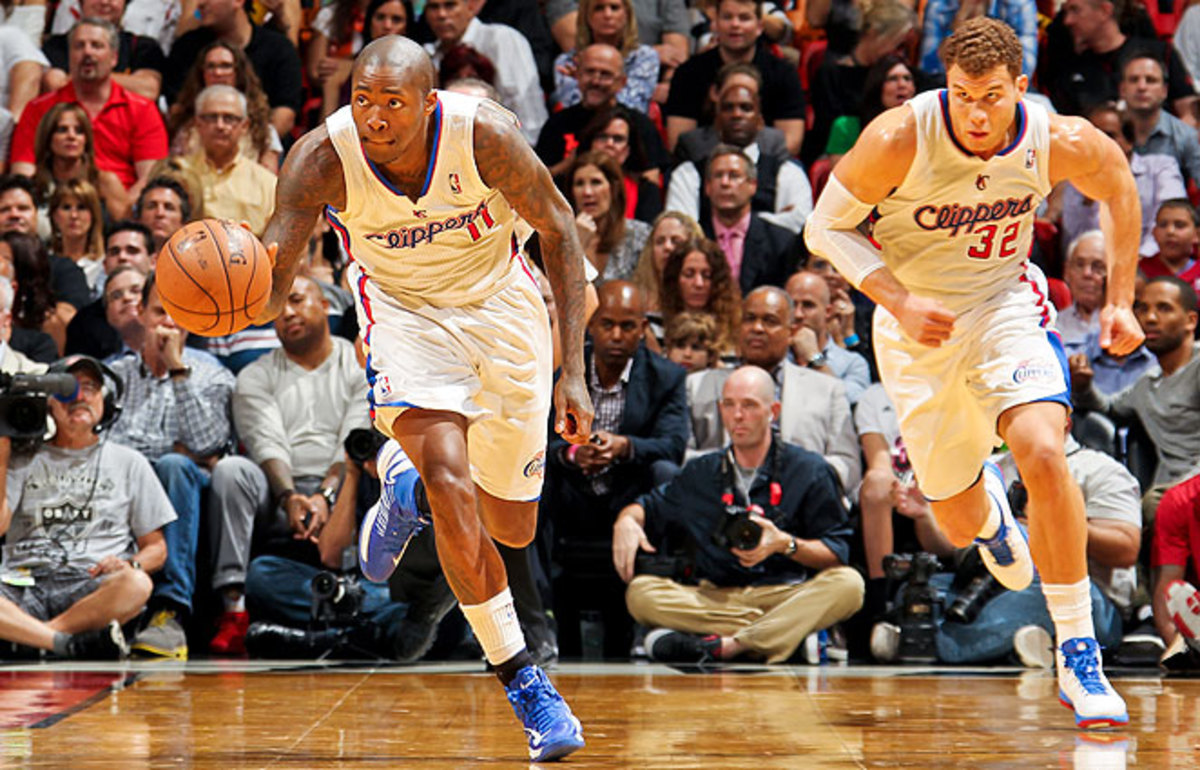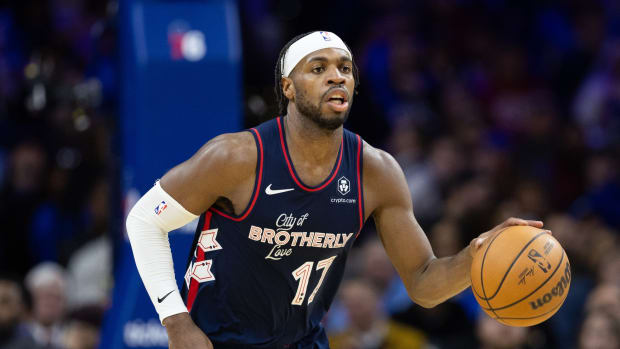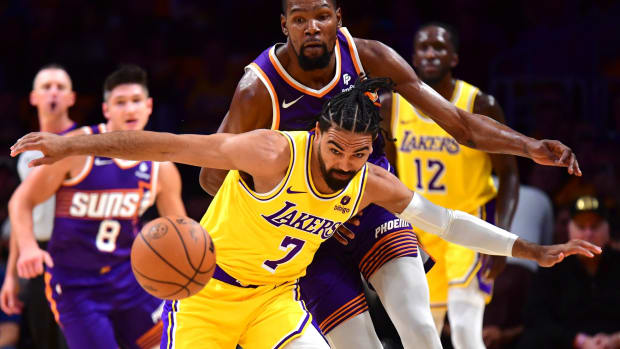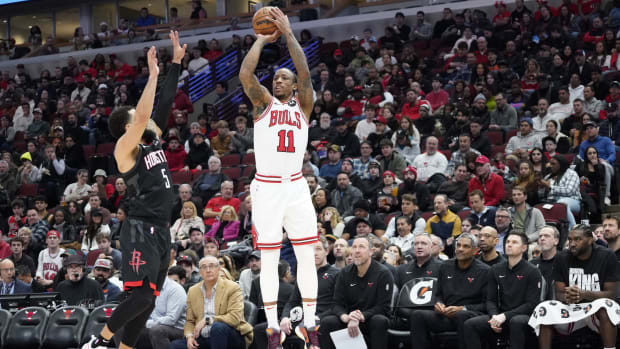After years of futility, Crawford has found recipe for success
NEW YORK -- For every Carmelo Anthony surge on Sunday, Jamal Crawford countered with one of his own. And as Anthony tried to hoist the Knicks on his shoulders in the third quarter of a 102-88 loss to the Clippers, there was Crawford, knocking down three-pointers, slipping inside for acrobatic layups, refusing to allow his former team to come back.
Crawford simply would not to allow the Clippers to lose. Which is ironic, because there was a time when Crawford couldn't play for a team that won.
He was a loser, at least as far as the playoffs were concerned, and the worst kind, too: The kind that couldn't even get in.
Remember that Crawford? For a decade, Crawford was the face of NBA futility. As a rookie, his Bulls team went 15-67. Over the first nine years of his career, Crawford's teams won just 31.3 percent of their games. His streak during that time of 667 straight games without a playoff appearance ranks third all time, right behind immortals like Tom Van Arsdale (929) and Otto Moore (682).
His coach in Atlanta, Mike Woodson, said of Crawford's futility, "I don't wish that on anybody."
The turnaround came with the Hawks, with a new team and a new role. Shortly after being traded from Golden State in 2009, Crawford sat down with Woodson and Hawks GM Rick Sund. We have a good core, they told him. And we need you to back them up.
Years earlier, Crawford might have resisted. This time, he embraced it and wouldn't let it go.
"I just wanted to win," Crawford said. "I'd have done anything. I'd have brought the guys popcorn if that's what it took. When you're younger, you think about establishing yourself. Back then, I didn't want to come off the bench. The best players start. But when you get older, you understand that to win you have to have a really good bench as well."
Crawford thrived in the role of supersub, averaging 18 points per game in 2009-2010 and winning the Sixth Man of the Year award by a landslide. He got into the playoffs, ended his drought and averaged 16.3 points in the two rounds in which Atlanta played. His production dipped to 14.2 points the following season, but he went back to the playoffs, averaging 15.4 points in another two rounds of play. Crawford moved on to Portland in 2011, continuing in a reserve role, continuing to score (14 points), continuing to energize a second unit.
He is with the Clippers now, and little has changed. Los Angeles has an MVP-candidate at point guard in Chris Paul and a savvy veteran 2-guard in Chauncey Billups. They have the dynamic Eric Bledsoe providing energy off the bench and they have Crawford, who is once again filling it up, averaging 17 points per game, a leading candidate for another Sixth Man award on another team headed to the playoffs.
"My job with the second unit is simple," Crawford said. "Score and make plays. For this team, it's a great thing having me come off the bench. It's kind of like what Oklahoma City had with James Harden. It gives us a good balance. You can't have all your best scorers on the floor at once. It just doesn't mix well."
Crawford is the captain of the league's second-best scoring bench unit, a group of players, Billups says, that could start for many teams out there. Crawford and Bledsoe run the backcourt, Matt Barnes and Grant Hill man the wings while Lamar Odom and Ronny Turiaf shore up the frontcourt.
In L.A., practices are wars. "A lot of times, our scrimmages are better than our games," Billups said. "I think we just wear teams down. The deeper we go, the better they get."
Depth is the strength of this Clippers team, one with growing expectations. They have a treasure trove of star power in Paul and Blake Griffin, an improving defensive-minded center in DeAndre Jordan and a capable swingman in Caron Butler. Vinny Del Negro has done a superb job mixing and matching a talented roster while continuing to mold Griffin from an electrifying dunker into a polished post player.
Yet critics still cite the Clippers lack of a Tim Duncan- or Zach Randolph-type post presence as their biggest weakness. Most in L.A.'s locker room shrug it off. There is a prevailing belief behind closed doors that Paul and Billups, who has played in just five games this season, will be able to manufacture offense when needed and that Griffin's growth is being overlooked.
"Blake is so much more than a dunker," Billups said. "He's really become a complete player."
Indeed, with every big win, L.A.'s confidence grows. The Clippers got tattooed in Miami on Friday but bounced back with a decisive road win on Sunday against the Eastern Conference's next best team. The health problems of the past month appear to be behind them and once again they can flex as much depth as any team in the league. It begins with Crawford, the once reluctant sixth man, the once perennial doormat who has evolved into a critical piece of a winner.




































